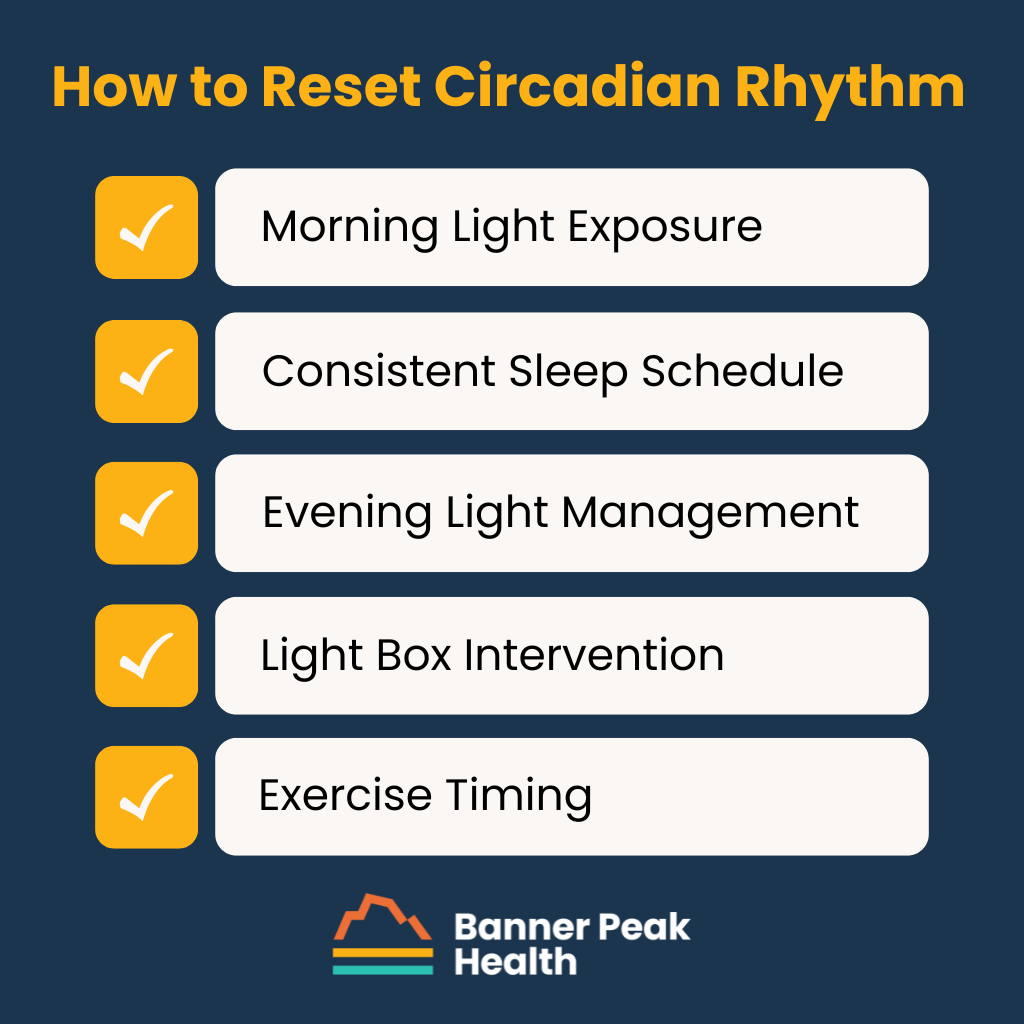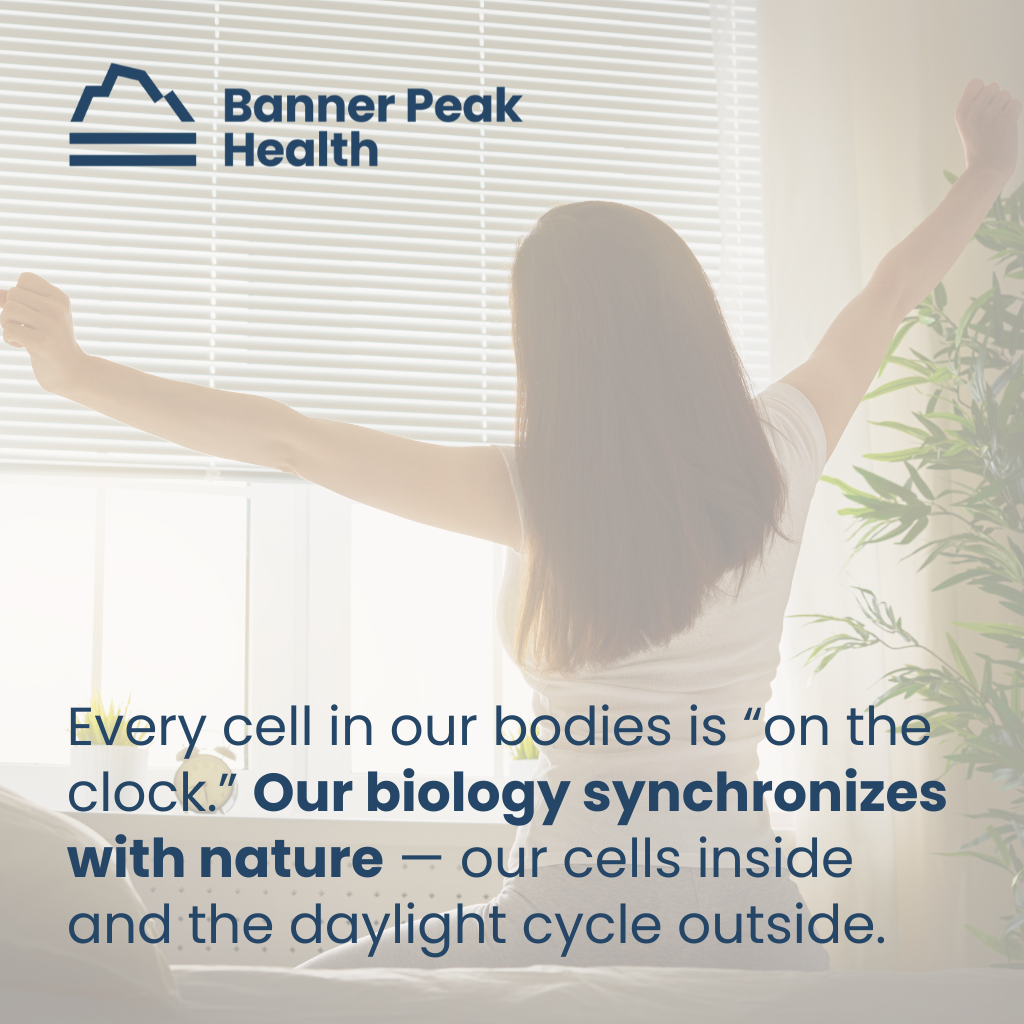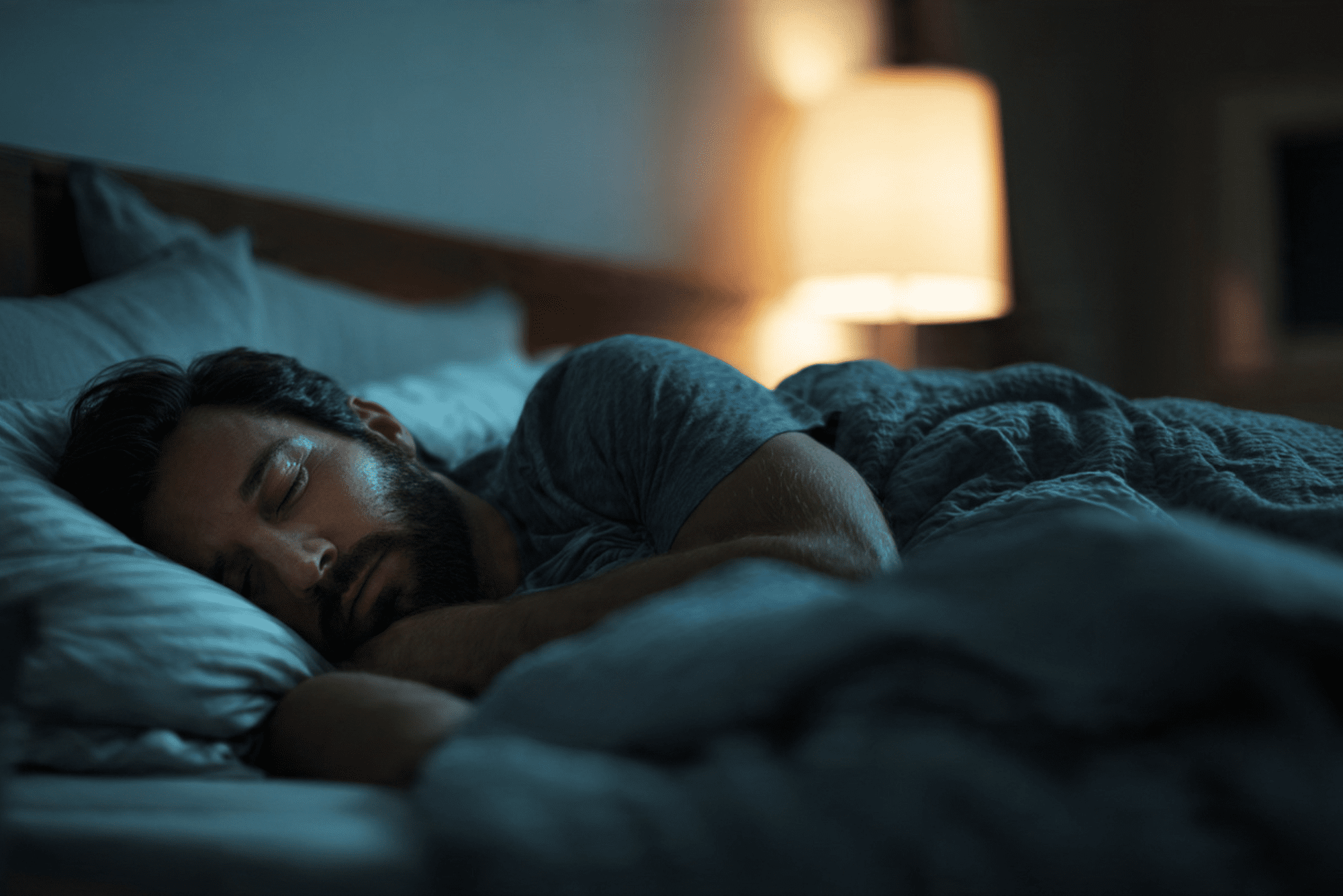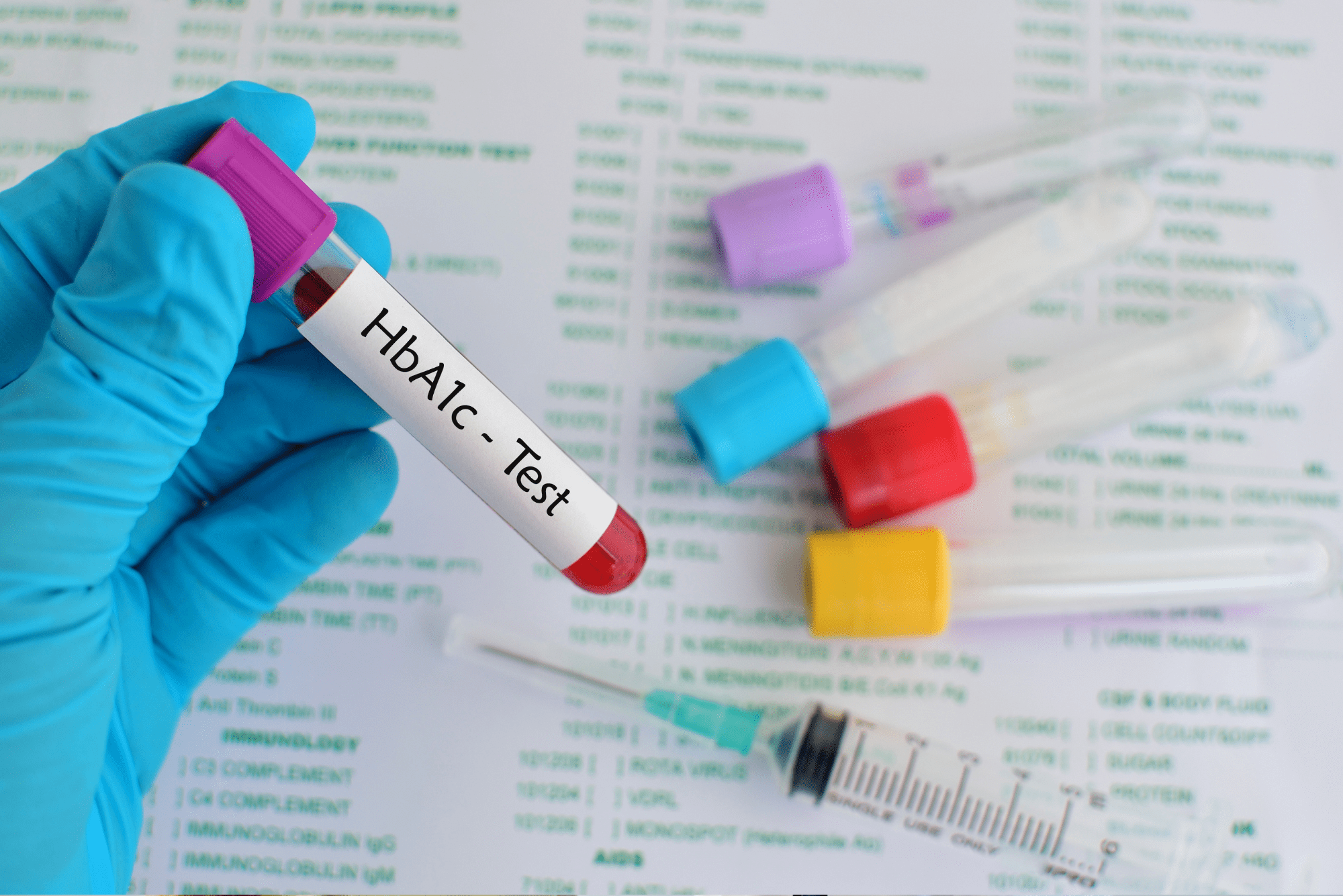Throughout history, our species has modified our environment to meet our needs, from the advent of fire to the invention of the lightbulb. The converse has always fascinated me — how the environment impacts us.
Today, I’ll discuss science-backed methods for how to reset your circadian rhythm naturally, including light therapy, sleep timing, and expert recommendations for better sleep-wake cycles. You’ll learn how proper circadian alignment impacts your health and wellness.
How to Reset Your Circadian Rhythm: Quick Steps
- Get morning sunlight exposure within two hours of waking.
- Maintain consistent sleep and wake times.
- Avoid bright artificial light in the evening.
- Exercise in the morning when possible.
- Go to bed and wake up at consistent times.
- Limit light exposure before bedtime.
Light and Our Biology
Every cell in our bodies is “on the clock.” Our biology synchronizes with nature — our cells inside and the daylight cycle outside.
In 2017, three scientists won the Nobel Prize in Physiology for delineating the mechanisms of our internal clocks. Our eyes contain specific receptors that have evolved to sense light not for vision but to send a signal to the suprachiasmatic nucleus of the brain, which is the master clock of our body. It then synchronizes internal clocks, which exist in practically every cell in our body. When and how light reaches our eyes has profound effects on our biology and emotions.
The Health Risks of a Disrupted Circadian Rhythm
I recently reviewed data from the Nurses’ Health Study, which examined night owls’ and morning sparrows’ risks of diabetes. Night owls are individuals with a circadian rhythm longer than 24 hours (they stay awake later and have difficulty waking up in the morning). Morning sparrows are the opposite.
According to this study, night owls have a much higher risk of developing diabetes than morning sparrows, illustrating the dangers of living life out of synchrony with your circadian rhythm. This is just one of the potentially dangerous health outcomes that can occur when night owls must wake up early for school or work.
The pandemic, with its remote work and school options, created a vast experiment by allowing people to learn how to reset their circadian rhythm and live in accordance with their own natural patterns. I’m excited to follow new studies from this period demonstrating this flexibility’s positive impact on health outcomes.
Teenagers and Circadian Disruption
Teenagers suffer greatly from being forced to time their lives out of sync with their circadian rhythms. Among the many hormonal changes that occur during adolescence, this group’s circadian rhythms lengthen, leading teenagers to become night owls. However, schools start early, which sets students up for failure.
Medical literature shows that starting school 30–60 minutes later results in improved academic and athletic performance as well as behavioral and emotional well-being.

How to Reset Circadian Rhythm
Morning Light Exposure
Insomnia has many causes. One common cause is circadian rhythm asynchrony.
Modern society has led us to miss the sun’s timing cues. We don’t get its wake-up call in the morning, often not seeing any early morning sunshine. We bathe our eyes in artificial light well after the sun has set, reducing any signals for our body to prepare for sleep.
To reset your circadian rhythm, expose your eyes to bright natural light as early in the morning as possible. Avoid wearing sunglasses during the first two hours of the day if you’re outside.
Consistent Sleep Schedule
Your body thrives on regularity when you want to reset your circadian rhythm. Going to bed and waking up at consistent times — even on weekends — reinforces your internal clock’s natural cycle.
Your brain begins preparing for sleep about two hours before bedtime by releasing melatonin. Consistency helps your body anticipate these transitions and optimize hormone release patterns. If your schedule varies widely, your internal clock receives mixed signals, making it harder to reset your circadian rhythm properly.
Start with small changes: Shift your bedtime by 15-minute increments until you reach your target schedule. This gradual approach helps your body adjust without the shock of sudden schedule changes that can further disrupt your circadian rhythm.
Evening Light Management
The hours before bedtime impact your ability to reset your circadian rhythm. Exposure to blue light from screens and bright indoor lighting tells your brain it’s still daytime, suppressing melatonin production.
Three hours before bedtime, dim household lights and switch to warmer color temperatures. Use night mode on electronic devices, or better yet, avoid screens completely in the hour before sleep.
Consider wearing blue-light blocking glasses in the evening, which can help reset your circadian rhythm by preventing artificial light from interfering with your body’s natural sleep signals.
Light Box Intervention
A growing body of literature also associates circadian rhythm asynchrony with emotional disorders like depression and seasonal affective disorder (SAD), the latter of which often occurs in regions with less morning light, such as the northern latitudes in the fall and winter.
Studies have shown improvement in SAD by having people use a light box that replaces the intensity of natural sunlight (10,000 LUX) for a prescribed amount of time upon waking.
Exercise Timing
When treating patients with mood disorders, I prescribe sunshine and aerobic exercise whenever possible in the morning. It’s one of the best ways to reset your circadian rhythm and boost light, health, and wellness.
How to Reset Circadian Rhythm: Today’s Takeaways
- Morning light helps reset your circadian rhythm for better evening sleep.
- Whenever possible, reorganize your day around your circadian rhythm (and let teenagers sleep in when possible!).
- Avoid sunglasses in the morning to reset your circadian rhythm naturally.
- “Sunny disposition” is more than a metaphor for happiness — it’s a therapeutic modality.
- Retire to bed and wake up at consistent times, and limit light exposure three hours before bed.
- If you experience symptoms of SAD, explore treatment options with your doctor to reset your circadian rhythm.
We’re inextricably linked to our environment. Exposure to light influences who we are and how we live. Learning how to reset your circadian rhythm is a powerful step toward optimal health.

Barry Rotman, MD
For over 30 years in medicine, Dr. Rotman has dedicated himself to excellence. With patients’ health as his top priority, he opened his own concierge medical practice in 2007 to practice medicine in a way that lets him truly serve their best interests.




